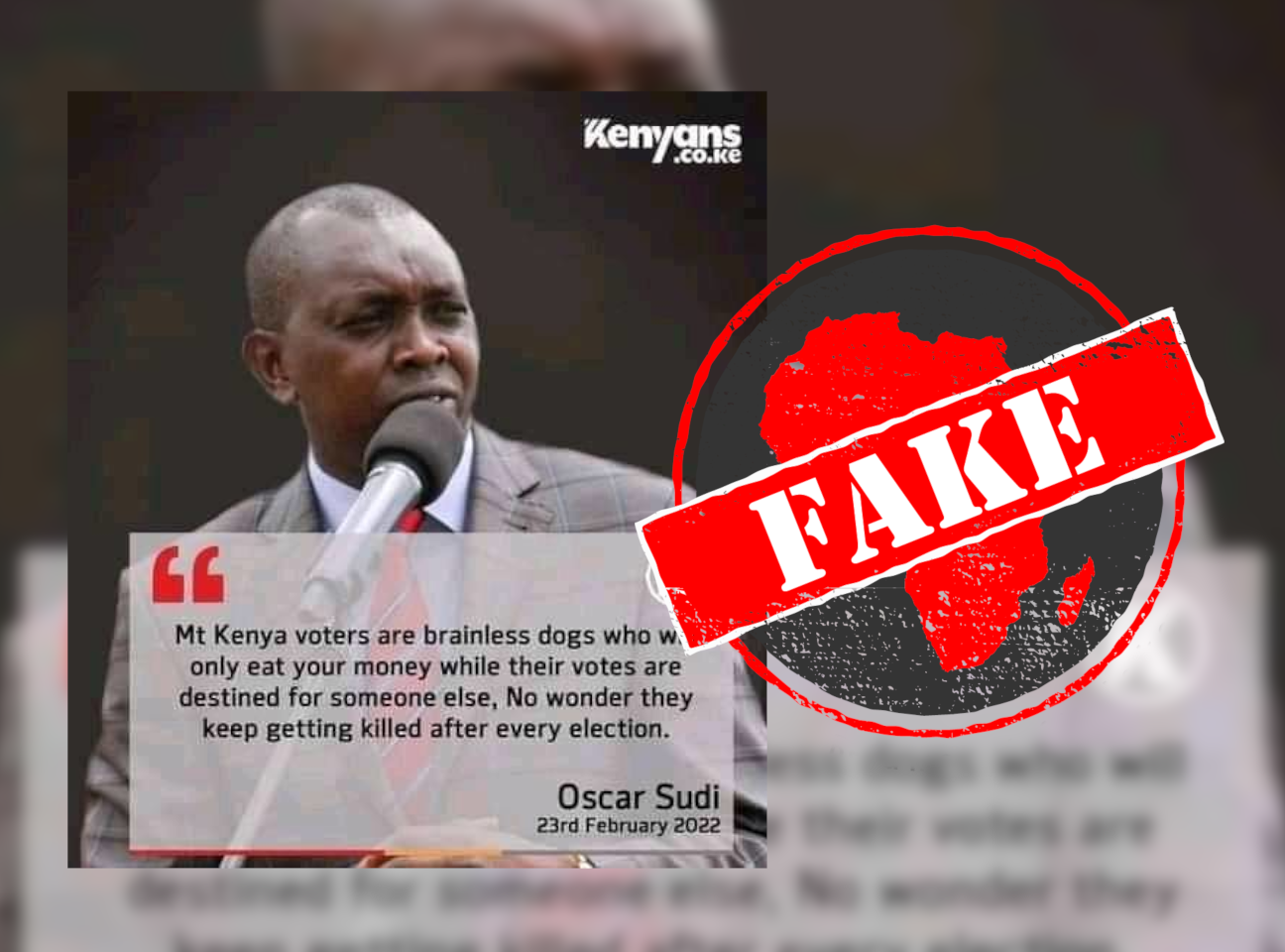A graphic posted on Facebook attributes a quote to Kapseret constituency legislator Oscar Sudi, suggesting that “Mt Kenya voters” are “brainless.”
“Mt Kenya voters are brainless dogs who will only eat your money while their votes are destined for someone else, No wonder they keep getting killed after every election,” reads the quote.
The graphic, posted on 23 February 2022, shows a photo of Sudi and the logo of Kenyans.co.ke, a digital news outlet, implying it was published by them.
“Mt Kenya” when used in a political context in Kenya usually refers to the communities living in the central region of Kenya, specifically the Kikuyu, Meru and Embu.
This came just hours after Kenyan president Uhuru Kenyatta addressed his central Kenya region supporters at Sagana State Lodge in Nyeri county, north of the capital Nairobi.
Here the president officially declared his support for opposition leader Raila Odinga’s presidential bid in the August 2022 general elections.
The quote has been shared on a Facebook page with over 46,000 followers and a group with over 115,000 followers.
But did Sudi refer to voters from the central region as “brainless dogs”, accusing them of dishonesty? We checked.

Fake graphic
On 23 February, Kenyans.co.ke flagged the graphic as fake.
They wrote, in part: “This post did not emanate from our media house. It does not conform to the in-house branding rules and did not go through the multiple approval checks set in place to prevent misreporting. We, therefore, flag it as FAKE.”
There is no credible source for the quote and the legislator also took to Facebook to call a similar quote fake.
Note: The same quote was shared on social media with the false claim it had been published by the Nation Africa news site. It is equally fake.
Republish our content for free
For publishers: what to do if your post is rated false
A fact-checker has rated your Facebook or Instagram post as “false”, “altered”, “partly false” or “missing context”. This could have serious consequences. What do you do?
Click on our guide for the steps you should follow.
Publishers guideAfrica Check teams up with Facebook
Africa Check is a partner in Meta's third-party fact-checking programme to help stop the spread of false information on social media.
The content we rate as “false” will be downgraded on Facebook and Instagram. This means fewer people will see it.
You can also help identify false information on Facebook. This guide explains how.


Add new comment